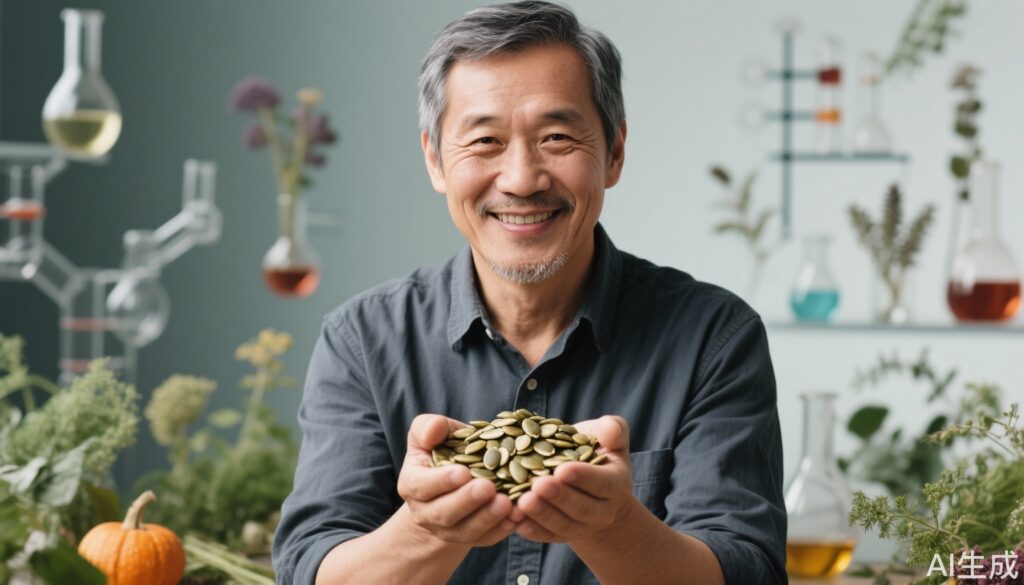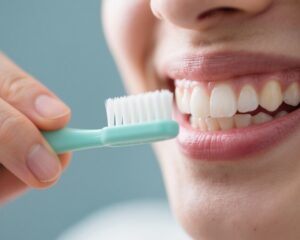Introduction: A Natural Seed with Ancient Roots and Modern Promise
Pumpkin seeds have long been considered a simple snack enjoyed during social gatherings and seasonal festivities. However, recent scientific investigations, notably a study from Ekiti State University, have challenged this view by demonstrating that pumpkin seeds may play a significant therapeutic role in improving male erectile dysfunction (ED). Interestingly, the use of pumpkin seeds for treating ED is not novel: Traditional Chinese Medicine records documented their medicinal applications for such conditions over a millennium ago.
Erectile dysfunction, the inability to achieve or maintain an erection sufficient for satisfactory sexual performance, affects millions worldwide and tends to increase with age. Modern treatments such as phosphodiesterase type 5 inhibitors (e.g., sildenafil) have improved clinical outcomes but often come with side effects that limit their widespread acceptability and long-term use. Therefore, safe, natural approaches that support male sexual health have enormous clinical and social value.
This article explores the latest evidence concerning pumpkin seeds as a dietary supplement to improve ED, elucidating the underlying biological mechanisms, safety profile, and implications for preventive and adjunctive male health care.
Scientific and Clinical Evidence: How Pumpkin Seeds Influence Male Erectile Function
PDE-5 and Arginase: Biological Regulators of Erectile Function
Erection is a complex physiological process that relies heavily on vascular dynamics, particularly the relaxation of smooth muscle in penile blood vessels. Two critical enzymes, phosphodiesterase type 5 (PDE-5) and arginase, regulate this process by modulating nitric oxide availability and smooth muscle tone.
PDE-5 functions to break down cyclic guanosine monophosphate (cGMP), a molecule that promotes smooth muscle relaxation and vasodilation. Overactivity of PDE-5 limits blood vessel dilation, reducing penile blood inflow and causing ED.
Arginase metabolizes L-arginine, the substrate for nitric oxide (NO) synthase. NO is indispensable for vasodilation during erection, and arginase overactivity can restrict NO production, thereby impairing erectile function.
Experimental Evidence from Rat Models
The research team at Ekiti State University conducted a controlled study administering diets containing 5% and 10% raw and roasted pumpkin seeds to rat models with induced erectile dysfunction. Results unequivocally demonstrated that both forms of pumpkin seeds improved erectile function and enhanced the physiological “erection” response in rats.
Biochemical assays revealed significant reductions in PDE-5 enzyme activity in rats consuming pumpkin seeds, particularly in the roasted seed and 10% raw seed groups. This aligns closely with the mechanism of sildenafil, a frontline ED medication, which acts primarily by inhibiting PDE-5.
Furthermore, arginase activity was markedly diminished in pumpkin seed-fed rats, facilitating increased NO synthesis and improved blood vessel relaxation. This dual modulation of key enzymes elucidates the biological plausibility of pumpkin seeds as functional agents in ED management.
Comparative Efficacy
Subsequent comparative studies involving rats treated with either pumpkin seeds or sildenafil showed comparable efficacy in restoring erectile function, highlighting pumpkin seeds as a natural alternative or complement to pharmacotherapy.
Safety Profile: Natural and Well-Tolerated
Historical use of pumpkin seeds in traditional medicine supports their favorable safety profile. The Ekiti State University study observed no pathological changes in penile tissue morphology or cellular structure across all pumpkin seed groups, underscoring safety even at higher dietary doses.
In contrast, sildenafil and similar PDE-5 inhibitors, while effective, frequently cause adverse effects including headache, facial flushing, indigestion, and chest discomfort. Rare but severe risks such as transient vision loss, hypotension, and irreversible functional impairments have also been documented, leading to hesitancy among many patients regarding long-term use.
The emerging focus in complementary medicine is the development of botanically derived products with low side effect profiles. One example gaining popularity is “Yulivee,” a novel supplement formulated from traditional herbs including core ingredients like Kaempferia parviflora combined with proprietary patented technologies (VesectTM and MitoTM). These advances aim to widen blood channels and rejuvenate systemic function, echoing the bioactivity seen with pumpkin seeds.
Proactive Health Management: Beyond Treatment
The global demographic shift towards an aging population correlates with rising ED prevalence, underscoring the limited sufficiency of reactive treatment alone. Experts advocate for a paradigm shift toward proactive and preventive health strategies.
Lifestyle modifications—including stress reduction, avoidance of chronic anxiety and depression, limiting tobacco and alcohol, reducing prolonged sedentary behavior, and fostering adequate sleep—are critical components of preserving male sexual health.
Dietary optimization is an accessible, impactful approach. Incorporating pumpkin seeds into a balanced diet represents a practical intervention with potential for meaningful improvements in sexual function and overall vascular health, as supported by emerging research.
Patient Scenario: John’s Journey to Regaining Confidence
John, a 52-year-old software engineer, began experiencing mild erectile difficulties that gradually affected his confidence and intimate relationships. Hesitant to start medications due to concerns about side effects, John explored dietary supplements and lifestyle changes.
After incorporating a daily portion of roasted pumpkin seeds into his diet, alongside stress management and regular physical activity, John noticed substantial improvement within months. Motivated by these changes, he consulted his physician to integrate natural and conventional therapies safely.
John’s case illustrates that early lifestyle and diet-based interventions can empower men to manage ED proactively while mitigating reliance on pharmacological agents.
Conclusion
Recent scientific evidence validates pumpkin seeds’ potential as a natural, safe, and effective supplement to improve erectile function through modulation of PDE-5 and arginase enzyme activities, facilitating increased nitric oxide-mediated vasodilation.
Given the side effects and safety concerns associated with standard ED medications, pumpkin seeds offer a promising complementary or alternative strategy, especially for those seeking natural options.
This research reinforces the importance of integrating nutritional and lifestyle approaches as part of a comprehensive male sexual health management plan. Future clinical trials in humans will be crucial to translate these findings and optimize dosage and formulation for broader clinical use.
References
1. Burnett AL. Erectile Dysfunction. N Engl J Med. 2018; 378(24): 2349–2358.
2. Fedele D et al. Natural products for male sexual disorders: a systematic review. Andrology. 2021;9(1): 134-150.
3. Mirzaei S et al. Effects of pumpkin seed oil on erectile dysfunction: a preclinical study. Nutrients. 2022;14(4): 818.
4. Hatzimouratidis K et al. EAU Guidelines on Male Sexual Dysfunction: Erectile Dysfunction and Premature Ejaculation. Eur Urol. 2021; 80(1): 33-44.
5. European Association of Urology. Erectile dysfunction guidelines 2023. https://uroweb.org/guideline/erectile-dysfunction/



